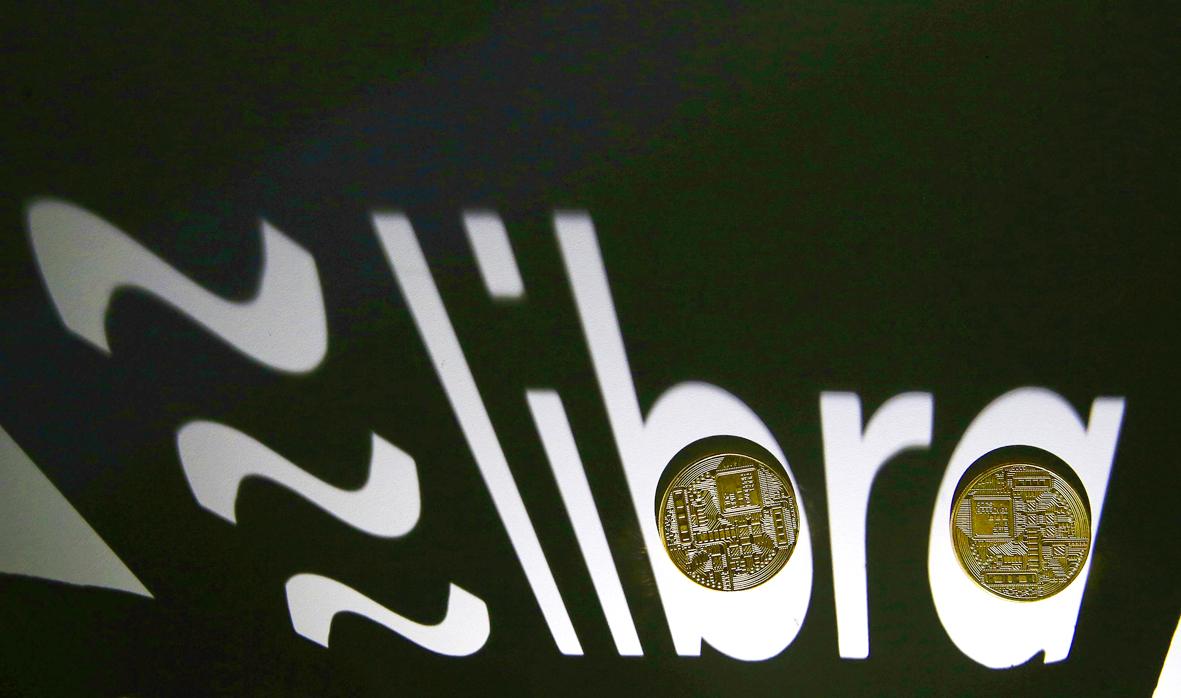Libra Association, a cryptocurrency project started by Facebook Inc that drew regulatory blowback worldwide, is hoping a new name offers a fresh chance to win over regulators and gain a foothold in the emerging market.
The group is now to be known as Diem Association, named for the word “day” in Latin, with its subsidiary Diem Networks serving as the payment system operator.
It is readying a currency that is to be called the Diem Dollar.

Photo: Reuters
“We like the connotation of it kind of being a new day for the project,” chief executive officer, Stuart Levey said in an interview. “We wanted a new start.”
Almost immediately after Libra launched in June last year, politicians and regulators raised concerns about the effort. They worried about privacy, money laundering and companies like Facebook taking power away from central banks.
Supporters such as PayPal Holdings Inc and Visa Inc fled the project, which initially hoped to attract 100 members before launch.
The new Diem, which had 27 participants as of yesterday, has abandoned the 100-member goal by launch and is taking things more slowly.
The group plans to issue a stablecoin — a digital currency pegged to an outside asset — that is tied to the US dollar.
Later, Diem might pursue additional fiat-based cryptocurrencies, Levey said.
Initially, Libra had proposed creating a cryptocurrency supported by a basket of government-issued fiat currencies and securities.
The group no longer needs 100 members to launch, though it is still hoping to expand its ranks, Levey said.
The association also no longer plans to eventually transition to a so-called permissionless blockchain, which would have let anyone participate in verifying transactions.
Other inner workings of the project might have changed as well.
Levey declined to comment on whether investors in the association would end up receiving a special governance coin, as per an earlier plan.
With the project’s ambitions scaled down, its appeal might have dwindled. There is plenty of competition from existing US dollar-based stablecoins, such as Tether and USD Coin.
One rival, called Celo Dollar, is also governed by an association that attracted many of the same companies that initially flocked to Libra.
Facebook has more than 2 billion users, some of whom might be persuaded to give Diem a try, but the social-networking giant had previously worked to distance itself from Libra. In May, it renamed its Calibra blockchain group Novi to make it sound less like Libra.
The Novi team is building a digital wallet that would eventually hold Diem coins, Levey said.
The Diem effort is waiting to be issued a license by Swiss regulators to launch, Levey said.
Diem is also in talks with US federal and state regulators, but is not waiting for any specific licenses or approvals from them, he said.
To satisfy regulators, Diem’s system would honor Western sanctions and regulatory reporting requirements.
“All of these design features we think make for a project we think that regulators will welcome,” Levey said, adding that he hopes central banks might wish to use the infrastructure in the future to issue their own digital currencies.

SELL-OFF: Investors expect tariff-driven volatility as the local boarse reopens today, while analysts say government support and solid fundamentals would steady sentiment Local investors are bracing for a sharp market downturn today as the nation’s financial markets resume trading following a two-day closure for national holidays before the weekend, with sentiment rattled by US President Donald Trump’s sweeping tariff announcement. Trump’s unveiling of new “reciprocal tariffs” on Wednesday triggered a sell-off in global markets, with the FTSE Taiwan Index Futures — a benchmark for Taiwanese equities traded in Singapore — tumbling 9.2 percent over the past two sessions. Meanwhile, the American depositary receipts (ADRs) of Taiwan Semiconductor Manufacturing Co (TSMC, 台積電), the most heavily weighted stock on the TAIEX, plunged 13.8 percent in

A wave of stop-loss selling and panic selling hit Taiwan's stock market at its opening today, with the weighted index plunging 2,086 points — a drop of more than 9.7 percent — marking the largest intraday point and percentage loss on record. The index bottomed out at 19,212.02, while futures were locked limit-down, with more than 1,000 stocks hitting their daily drop limit. Three heavyweight stocks — Taiwan Semiconductor Manufacturing Co (TSMC, 台積電), Hon Hai Precision Industry Co (Foxconn, 鴻海精密) and MediaTek (聯發科) — hit their limit-down prices as soon as the market opened, falling to NT$848 (US$25.54), NT$138.5 and NT$1,295 respectively. TSMC's

TARIFFS: The global ‘panic atmosphere remains strong,’ and foreign investors have continued to sell their holdings since the start of the year, the Ministry of Finance said The government yesterday authorized the activation of its NT$500 billion (US$15.15 billion) National Stabilization Fund (NSF) to prop up the local stock market after two days of sharp falls in reaction to US President Donald Trump’s new import tariffs. The Ministry of Finance said in a statement after the market close that the steering committee of the fund had been given the go-ahead to intervene in the market to bolster Taiwanese shares in a time of crisis. The fund has been authorized to use its assets “to carry out market stabilization tasks as appropriate to maintain the stability of Taiwan’s

In a small town in Paraguay, a showdown is brewing between traditional producers of yerba mate, a bitter herbal tea popular across South America, and miners of a shinier treasure: gold. A rush for the precious metal is pitting mate growers and indigenous groups against the expanding operations of small-scale miners who, until recently, were their neighbors, not nemeses. “They [the miners] have destroyed everything... The canals, springs, swamps,” said Vidal Britez, president of the Yerba Mate Producers’ Association of the town of Paso Yobai, about 210km east of capital Asuncion. “You can see the pollution from the dead fish.